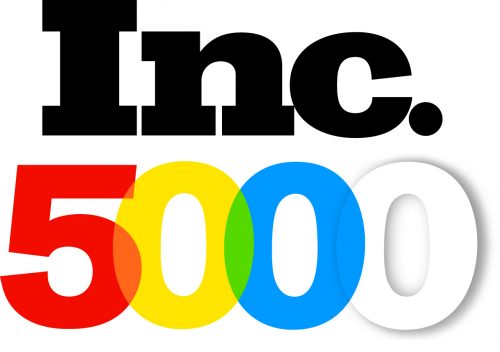Research shows that nearly 40 million Americans have been in debt for at least two years or more.
Do you fall into this statistic?
If so, it’s easy to feel trapped under the mountain of financial stress. It might seem like no matter how hard you work, how many expenses you cut or how much overtime you take, you still can’t catch up.
That’s where debt resolution comes in.
Designed to help you find a manageable way to pay your creditors and get back in the black, these solutions can offer an unparalleled respite when you need it the most.
Not sure how they work? Read on to learn the basics of these different solutions and how to get started with one today.
What is Debt Resolution?
The premise sounds promising, but what exactly is debt resolution?
In short, this is the process of taking a close look at your scattered, overwhelming monthly payments and figuring out a system that can make them easier to bear.
There are a few different approaches you can take when you’re ready to start exploring debt resolution options. Let’s take a look at five of the most common ones.
Five Types of Debt Resolution
There are five main types of debt resolution. The specific methods and timeframe will vary for each one, and it’s wise to not depend on any of these for an immediate fix.
In fact, you should expect any debt resolution to take three to five years to fully eliminate your debt and rebuild your credit. That said, these methods are proven and can be effective, but it’s important to keep your expectations realistic.
Credit Counseling
Sometimes, you simply need an extra pair of eyes to take a look at your finances and help them make sense. A credit counselor can take an unbiased look at your income and expenses, and help you create a budget.
As you track your spending, you’ll begin to notice areas that you can likely cut. It might be your cable bill, your magazine subscriptions, or that $4 latte that you grab every morning.
Your counselor can help forecast the savings you could reap when you make these simple adjustments. Only 41% of Americans use a budget to manage their finances, and sticking to one can make all the difference.
Many times, you can connect with credit counselors through local non-profit agencies who will provide this service for free. The Federal Trade Commission shares these guidelines to help you choose the right credit counselor for you.
Debt Consolidation
Are you constantly falling behind on your credit card payments each month?
Sometimes, it’s more than just the bottom-line number that causes you stress. It could also be the pile of different bills on the counter that’s about to topple over. In that case, debt consolidation solutions can offer an ideal solution.
With this approach, you’ll take out one big loan (usually a personal loan or new credit card). Then, you’ll work with that lender to gather all of your unsecured debts into a single, comprehensive monthly payment. That means instead of paying dozens of bills every month, you only pay one.
Then, your lender will disperse your monthly loan payment to your various creditors. In most cases, he or she can also work with those creditors to secure you a lower interest rate on your payments, saving you even more money.
While debt consolidation can impact your credit score in the short-term, the dip isn’t permanent. Rather, as you pay down your debts and become more consistent with your payment schedule, you’ll actually improve your credit rating over time.
Debt Solution
You can think of this approach as a middle-of-the-road form of debt resolution.
Under a debt solution plan, a non-profit credit counseling agency will communicate with your lenders to discuss the terms of your outstanding debt. Then, they’ll work to lower the interest rate on your recurring payments to a level that’s more affordable.
As with debt consolidation, this new plan will lump all of your different bills into one single payment. Yet, these two options differ in their approach.
With debt solution, you aren’t required to take out a personal loan or additional lines of credit. In addition, you can initiate a debt consolidation solution on your own through the lending process, whereas you’ll work closely with a credit counselor on a debt solution approach.
While you don’t have to have a stellar credit score to join such a solution, keep in mind that any missed payments could result in the termination of the debt concessions you’ve received.
Debt Validation
Do the numbers on your monthly statements confuse you? If so, it’s unwise to pay them blindly.
While it doesn’t happen often, creditors can make mistakes. There could also be foul play at work, along with a host of other culprits. For instance, a creditor might send a bill to the wrong person or try to collect debts that you’ve already paid.
If you believe that you have a firm case and can prove any inaccuracies, debt validation is your strongest and smartest way forward.
Through this debt resolution, you’ll have the opportunity to challenge any debts you owe. You can also request written verification of a debt from any given debt collector. Both of these rights are laid out in the United States Federal Fair Debt Collection Practices Act (FDCPA).
As soon as you partner with a debt validation company, they’ll go to work checking and validating the details of your consumer credit accounts.
Bankruptcy
We’re putting this one last on our list because it should be the final option you consider.
With so many debt resolution options at your disposal, it’s best to exhaust all of those options first before you officially file for Chapter 7 Bankruptcy.
However, there might be certain circumstances that occur, making you confident that you will not be able to pay your expenses by their required due date. When this is the case, bankruptcy can offer you a viable way out.
The process to file for bankruptcy can be involved, but the ultimate goal is to reclaim your financial footing. A high-level overview of the steps you can expect includes:
- Ensuring eligibility for bankruptcy
- Analyzing your debts
- Researching your property exemptions
- Reaffirming or redeeming any outstanding, secured debts
- Completing the bankruptcy forms
- Filing the forms and paying a fee
- Enrolling in a credit counseling course
- Submitting documents and meeting with the bankruptcy trustee
Upon the conclusion of a successful bankruptcy process, the court will issue an order to discharge your outstanding debts. From that point onward, you are under no legal obligation to pay your debt, nor is your creditor legally allowed to claim it.
Partnering with a Legitimate Debt Resolution Company
There are many companies and non-profits out there that are ready to help you overcome this financial hurdle. Yet, the unfortunate reality is that like many other industries there are scammers looking to earn a quick buck off your misfortune.
That said, how can you make sure that you’re partnering with a debt resolution company that’s legitimate and reputable?
Most of the time, a personal recommendation is the best way to go. Ask your friends, family members and colleagues if they’ve used a similar service in the past and if so, how their experience went.
The only caveat? Money can be a sensitive subject for most people, so don’t be surprised if you put out a plea for recommendations and all you get are crickets.
Thankfully, there are plenty of other resources and avenues to try! Let’s review some of your top options.
Debthunch Database
First, head over to our website. Here, you’ll find a personalized database of debt consolidation companies capable of meeting your specific financial needs. An accredited business with an A+ rating from the Better Business Bureau, our reputation hinges on our ability to connect you with the people and plans that can transform your financial future.
We’ve taken the time to review all of the debt consolidation options on the market. Then, we weed out the ones that don’t match your criteria, so you’re left with only those that do.
Don’t believe us? Don’t take our word on it. Check out our customer reviews to learn what sets our platform apart.
Professional Organizations
When looking for top-tier debt resolution companies, you can also check out industry-recognized federations and organizations. Two of the most prominent ones in this space include:
- National Federation of Credit Counseling
- Financial Counseling Association of America
Both of these organizations have members companies scattered all around the world. This way, they’re always up-to-date on program recommendations and can share them with you.
Counselor Credentials
Another way to ensure that the credit counselor you’re working with is the real deal? Ask to see his or her credentials!
Counselors must attend specialized training and obtain certification before working in the debt resolution field. They’re also required to stay fresh and relevant by taking continuing education every two years.
Unless the agency in question can prove that all of its counselors are certified, trained and skilled, continue your search elsewhere. This is a simple request that should be easy to meet.
Avoiding False Promises
When you’re up to your eyeballs in debt, any grand promise can sweep you off your feet. It can also empty your pockets.
Knowing your vulnerability, fraudulent credit counselors might try to make grand claims to encourage you to hire them. For instance, they might guarantee that they can make you debt-free in a year or that your debt will be mere pennies on the dollar.
Remember: It’s a violation of federal law for any debt resolution company to ask for money upfront. If you have to spend money to save it, keep looking.
Lighten Your Shoulders and Ease Your Debt
You didn’t get yourself into debt overnight, and you might not work your way out of it that quickly.
Yet, debt resolution options are specially designed for people in your same shoes. When you’re ready to learn more about all the options that are available, fill out this form.
We’ll review your requirements against our extensive database of debt resolution experts. Then, we’ll match you with the managers who can help you reduce your expenses, lower your interest rates, and reclaim your sanity.
You don’t have to go at it alone, so let’s connect!




